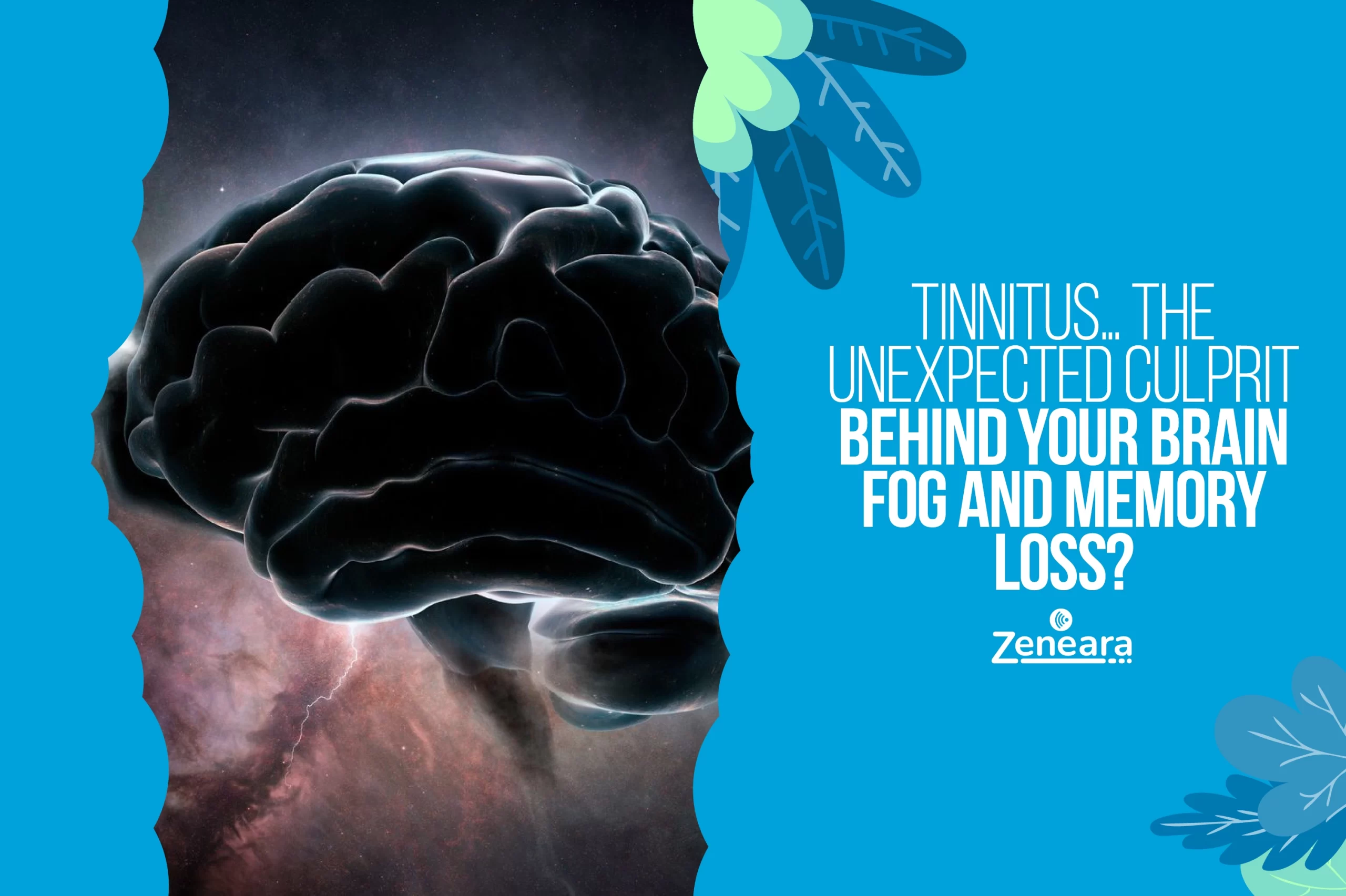Hey, it’s James Barrett here!
Just yesterday, I had a chance encounter at the local café that really opened my eyes. As I waited for my tea, I overheard someone at the next table sighing heavily and muttering to himself about forgetting his wife’s birthday.
His name was Mark, and when I asked if everything was okay, he looked up with a tired smile.

‘It’s this constant ringing in my ears,’ Mark explained. ‘It’s like I can’t think straight anymore. It’s not just the noise; it’s the fog in my mind, the slips in my memory. I never used to be like this.’
We ended up talking for over an hour.
Mark shared how his tinnitus had become a barrier, making everyday tasks and remembering simple things increasingly difficult. It struck me how many of us might be silently struggling with similar issues, unaware that others are facing the same battles.
So today, I’m bringing our conversation to you, driven by a simple belief that we all deserve to understand and tackle our health challenges head-on, not just for our well-being but for the freedom to enjoy every moment without hindrance.
This isn’t just my mission… it’s our journey together. Sharing these insights and solutions is my way of helping us all to reclaim that freedom.
Before we dive deep, I’d love to hear from you…
Can you share a moment when tinnitus, brain fog, or memory loss made an everyday task unexpectedly difficult for you? I’d love to hear about your experience and how you handled it. Send it in a reply.
Now, let’s unveil some truths and strategies to help us all live comfortably and clearly.
The Invisible Struggle: Tinnitus and Cognitive Health
For many, tinnitus is a constant ringing, buzzing, or hissing in the ears, but its impact often extends beyond hearing disruptions. Tinnitus can become an omnipresent background noise that drains cognitive resources. The brain’s effort to constantly ignore this noise can lead to fatigue, manifesting as brain fog and memory lapses.
Understanding Brain Fog and Memory Loss Linked to Tinnitus
Brain Fog
This is often described as feeling ‘cloudy’ or having difficulty focusing, understanding, or processing information. It’s a type of cognitive dysfunction involving:
- Memory problems
- Lack of mental clarity
- Poor concentration
- Inability to focus
Memory Loss
Memory issues related to tinnitus aren’t typically about forgetting long-term memories but more about difficulties with short-term memories, like forgetting names, appointments, or why you walked into a room.
Why Does This Happen?
Cognitive Overload
Tinnitus forces the brain to allocate resources to filter out the constant noise, leaving less capacity for other functions, such as memory storage and retrieval.
Sleep Disruption
Good sleep is crucial for cognitive function and memory consolidation. Tinnitus often disrupts sleep, leading to poor memory retention and increased mental fog.
Stress and Anxiety
Tinnitus can be incredibly stressful and anxiety-inducing, further affecting cognitive abilities. Stress hormones adversely affect the brain’s memory centers, like the hippocampus
Strategies to Manage Tinnitus and Enhance Cognitive Function
1. Sound Therapy:
Using background noise or white noise to help mask tinnitus sounds can reduce the cognitive load of filtering out tinnitus.
2. Cognitive Behavioral Therapy (CBT):
This can help manage the emotional response to tinnitus, reducing stress and potentially improving cognitive focus.
3. Exercise:
Regular physical activity increases blood flow to the brain, which can help support better cognitive functions and counteract the effects of stress and poor sleep.
4. Mindfulness and Meditation:
These practices help reduce stress and improve concentration, helping to clear the fog that tinnitus may bring

5. Healthy Diet:
Eating foods rich in antioxidants and vitamins can support brain health. For example, omega-3 fatty acids, found in fish and nuts, promote better brain function and may reduce inflammation associated with tinnitus.
To conclude,
Living with tinnitus can be challenging, but it doesn’t have to define your life or memory capabilities.
By understanding the connection between tinnitus and cognitive function, and implementing some of these strategies, you can take control of your health and live a fulfilling life.
Remember, every step you take towards managing tinnitus helps quiet the noise and clears the path for a sharper, more focused mind.






